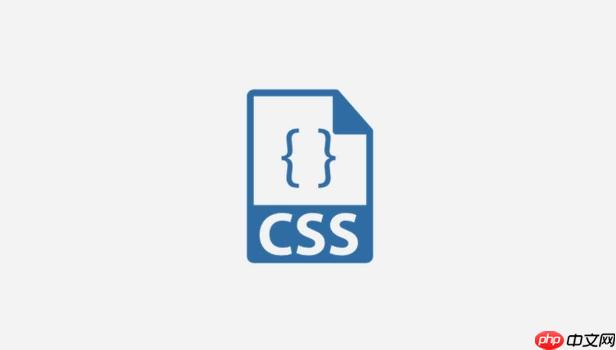伪元素::before和::after可在css Grid中作为网格项使用,通过content属性生成内容并配合grid-column或grid-area分配位置,实现页眉页脚、装饰元素等布局效果,无需额外html标签。

在使用CSS grid布局时,伪元素 ::before 和 ::after 可以作为视觉装饰或结构占位符融入网格中,增强布局表现力而不破坏HTML结构。虽然伪元素默认不占据文档流中的独立节点,但在Grid容器中,它们会成为网格项(grid items),从而可以被分配到指定的网格区域。
伪元素在Grid中的基本行为
当父元素设置为 display: grid 时,其所有子元素(包括生成的伪元素)都会被视为网格项。但需注意:伪元素是行内生成的内容,默认不会自动显示,必须配合 content 属性才能渲染。
示例:
.grid-container { display: grid; grid-template-columns: 1fr 1fr 1fr; gap: 10px; } .grid-container::before { content: "Header"; background: #4CAF50; color: white; grid-column: span 3; text-align: center; padding: 20px; font-weight: bold; } .grid-container::after { content: "Footer"; background: #333; color: white; grid-column: span 3; text-align: center; padding: 10px; }
这里 ::before 和 ::after 被当作网格项处理,分别占据首行和末行,并通过 grid-column: span 3 横跨三列,实现无需额外标签的页眉页脚效果。
立即学习“前端免费学习笔记(深入)”;
结合命名网格区域使用
利用 grid-template-areas 可更直观地将伪元素嵌入布局结构。
.layout { display: grid; grid-template-columns: 100px 1fr; grid-template-rows: 50px 1fr 50px; grid-template-areas: "header header" "sidebar main" "footer footer"; height: 100vh; } .layout::before { content: "导航栏"; grid-area: header; background: #0066cc; color: white; display: flex; align-items: center; justify-content: center; } .layout::after { content: "版权信息 © 2024"; grid-area: footer; background: #222; color: #ccc; display: flex; align-items: center; justify-content: center; font-size: 0.9em; }
通过 grid-area 直接指定伪元素的位置,代码语义清晰,适合构建简单页面骨架。
实用场景与注意事项
- 装饰性元素:用 ::before 添加背景图案、分隔线或角标,避免增加无意义的 div。
- 状态提示:例如在卡片右上角用 ::before 插入“新”标签,配合定位固定在网格单元内。
- 响应式占位:在特定断点下用伪元素填充空缺网格,保持布局对称。
- content 不能为空字符串以外的值:若只需占位而无内容,可设为 content: “”。
- 兼容性考虑:旧版IE不支持伪元素参与Flex/Grid布局,需测试目标环境。
基本上就这些。合理使用 ::before 和 ::after 不仅能减少dom节点,还能让样式逻辑更集中。只要记得加上 content,并正确设置网格属性,它们就能自然融入Grid体系中。不复杂但容易忽略细节。
暂无评论


